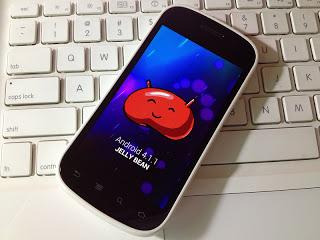 Ho poi riflettuto su due episodi che mi hanno convinto particolarmente, per due piattaforme di successo come lo sono iOS e Android; al primo impatto infatti mi era venuto da dirmi (a me, medesimo): “Vabeh, ma in fondo cosa vuoi che sia, un telefono che non si apre, né lato hardware né lato software. Può pensare a tutto l’azienda”.
Ho poi riflettuto su due episodi che mi hanno convinto particolarmente, per due piattaforme di successo come lo sono iOS e Android; al primo impatto infatti mi era venuto da dirmi (a me, medesimo): “Vabeh, ma in fondo cosa vuoi che sia, un telefono che non si apre, né lato hardware né lato software. Può pensare a tutto l’azienda”.Ho trovato la mia stessa considerazione errata, e sono tornato sui miei passi, soprattuttorendendomi conto di quanto il consumatore possa avere potere su un oggetto di sua proprietà e su quanto possa essere deleterio che io non possa mettere le mani nel ferro che io stesso ho acquistato, e tutto questo, tale epifanica rivelazione, l’ho avuta nel momento in cui iFixIt ha “aperto” (letteralmente) un Nexus 4, e ci ha trovato dentro - sorpresa delle sorprese - un chip LTE che oltretutto, non annunciato in nessuno spot e assente come feature dal “foglietto illustrativo”, funziona pure. Senza questo gesto, umano, non avremmo mai saputo che il nostro nuovo telefono aveva un chip LTE.
Spostiamoci su un’altra piattaforma: iOS. Anni ed anni è avvenuto qualcosa di impensabile: un uomo ha preso il suo bel toolkit da nerd, e sfidando le leggi dell’informatica (più o meno) ha “scoperchiato” (letteralmente, anche qua) il sistema operativo di Apple, rivelando feature che erano rimaste bloccate, per così dire, dato che non erano ritenute di una stabilità sufficiente. Tramite degli script è stato quindi possibile offrire una funzionalità di jailbreak, termine tecnico a cui ormai gli Apple addicted sono assuefatti, per poter usufruire di tutte le funzionalità del sistema operativo.
Il tallone d’achille di tutto questo sta nel fatto che il jailbreak su iOS, come pure in alcuni casi modificare il firmware di fabbrica del proprio dispositivo Android, può comportare alla decadenza prematura della garanzia, o addirittura all’arresto da parte delle forze di polizia (cosa che per fortuna allo stato attuale mi sembra sia stata evitata più volte, ma il pericolo è sempre dietro l’angolo). Qual è la morale? La morale è che non importa quale sistema operativo utilizziamo, non importa quale sia lo smartphone che ci regaleremo per Natale (che ormai è alle porte), non importa in quale stato ci troviamo: la vera carta vincente della tecnologia è sempre stata l’hacking, perché venivano trovati nuovi utilizzi in maniera creativa anche per dispositivi magari da buttare.
Dobbiamo quindi recuperare la volontà di indignarci quando da consumatori ci vediamo negato un diritto fondamentale: quello di fare ciò che vogliamo con il nostro ferro, a determinate condizioni, senza che ci vengano precluse possibilità di riparazione che a ben vedere non hanno nulla a che vedere con quello che noi possiamo fare danneggiando il nostro dispositivo con firmware di terze parti. È stato fatto molto: ad oggi molti produttori accettano in garanzia device Android senza la ROM per così dire “stock”, ma è di un fronte di militanza che parlo: devo essere libero, devo esserlo, di compiere hack su qualsiasi cosa io possa. Solo in questo modo potremo avviare un processo virtuoso che porterà a prodotti di cui il fruitore stesso deciderà l’impiego (come Arduino).
Adesso scusate, vado a darmi di nuovo ai medicinali: ho un po’ di influenza, e non vorrei essere poco in forma per domani, ché devo smontare l’impianto stereo per modificarlo.
Alessio Biancalana | @dottorblaster
Mobile: why open source is necessary
This week I had to do a lot with mobile, among all the other things. It's been quite a busy time for me, and I had the possibility to ask myself some questions about this topic, and whether this openness was truly necessary at all costs.
I then thought about two episodes that convinced me further, for two successful platforms such as iOS and Android; with the first impact I wanted to say (to myself): "Well, in the end what's the problem, a phone that won't open, neither from the hardware point of view nor the software point of view. The company will think about everything."
I found my own statement to be false, and returned on my steps, especially realizing how much the consumer can have power on an object that is his property, and how harmful it may be that I cannot put my hands on the iron that I purchased myself, and all this as an epiphany in the moment when iFixiT opened (literally) a Nexus 4 and found inside - surprise surprise! - an LTE chip that wasn't announced in any spot and wasn't even present among the features, and that works! Without this human gesture, we would never have known that our new phone had an LTE chip.
Let's pass on to another platform: iOS. For years something unthinkable has happened: a man has taken his nerd toolkit, and defying the laws of informatics (more or less) has opened (literally here, as well), Apple's OS, revealing features that had been blocked because not considered stable enough. Thanks to some scripts it was possible to offer a jailbreak feature, a technical term that Apple addicted fans are used to, in order to enjoy all the functions of the operative system.
The Achilles heel of all this is the fact that the jailbreak on iOS, and modifying the factory firmware of an Android device, can lead to a premature expiration of the waranty, or even arrest (this has been avoided several times, but the risk is always there). What's the lesson? The lesson is that it doesn't matter what OS you use, it doesn't matter what smartphone we'll buy for Christmas (which is now very near), it doesn't matter in what State we are: the true winning card of technology has always been hacking, because new creative uses were found for devices, even those that were destined to the bin.
We must recover or willingness to protest when as consumers we're denied a fundamental right, which is doing whatever we want with our iron, in determinate conditions, without excluding the possibilities of repair that have nothing to do with what may do by damagin our device with third party firmware. Much has been done: today many producers accept in waranty Android devices without the stock ROM, but we're talking about the principle: I must be free to hack whatever I can. Only this way we'll be able to start a virtuous path that will lead us to products for which the final user will decide the use (such as Arduino).
Now excuse me, I'm going to get my meds. I'm sick, and I want to be in shape for tomorrow, because I need to modify my stereo.
Alessio Biancalana | @dottorblaster






